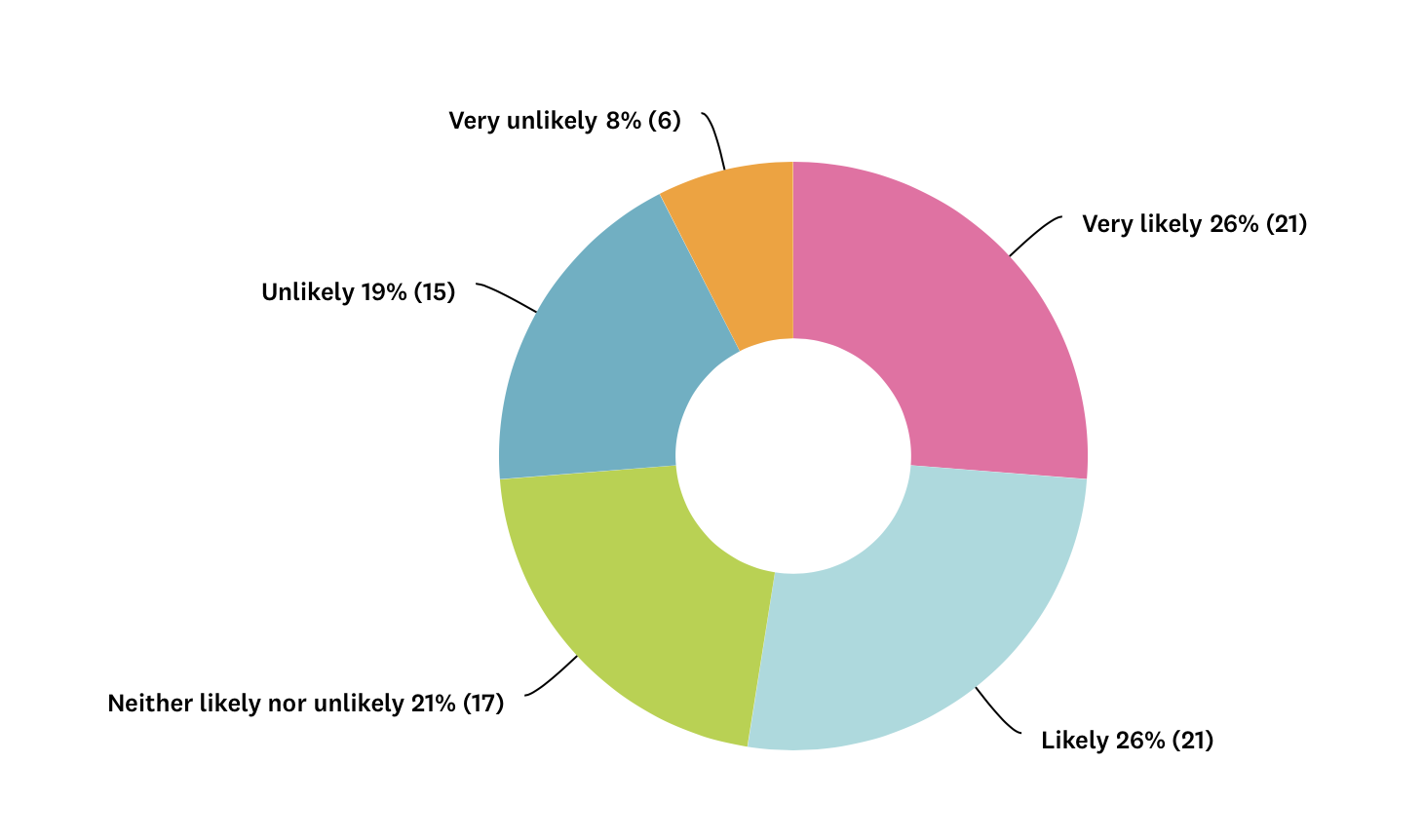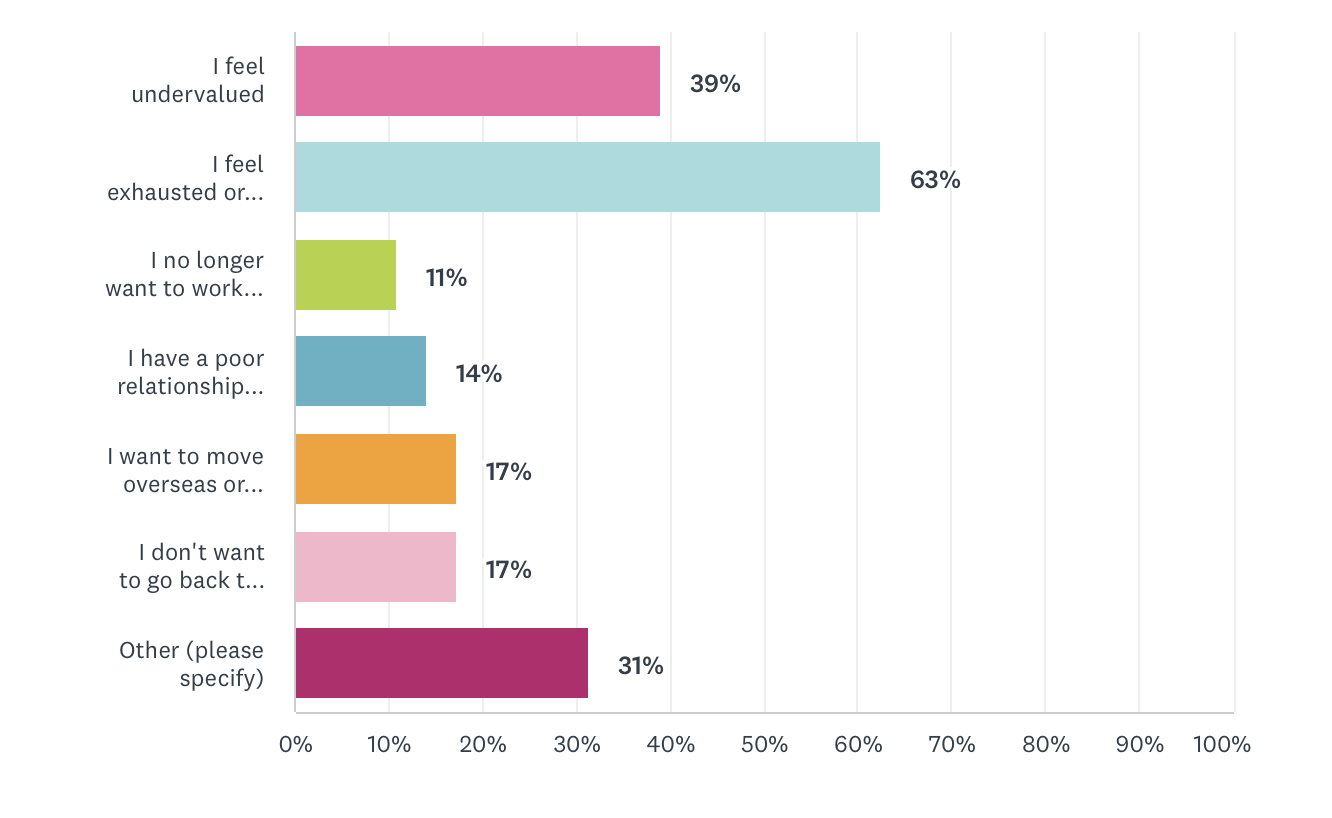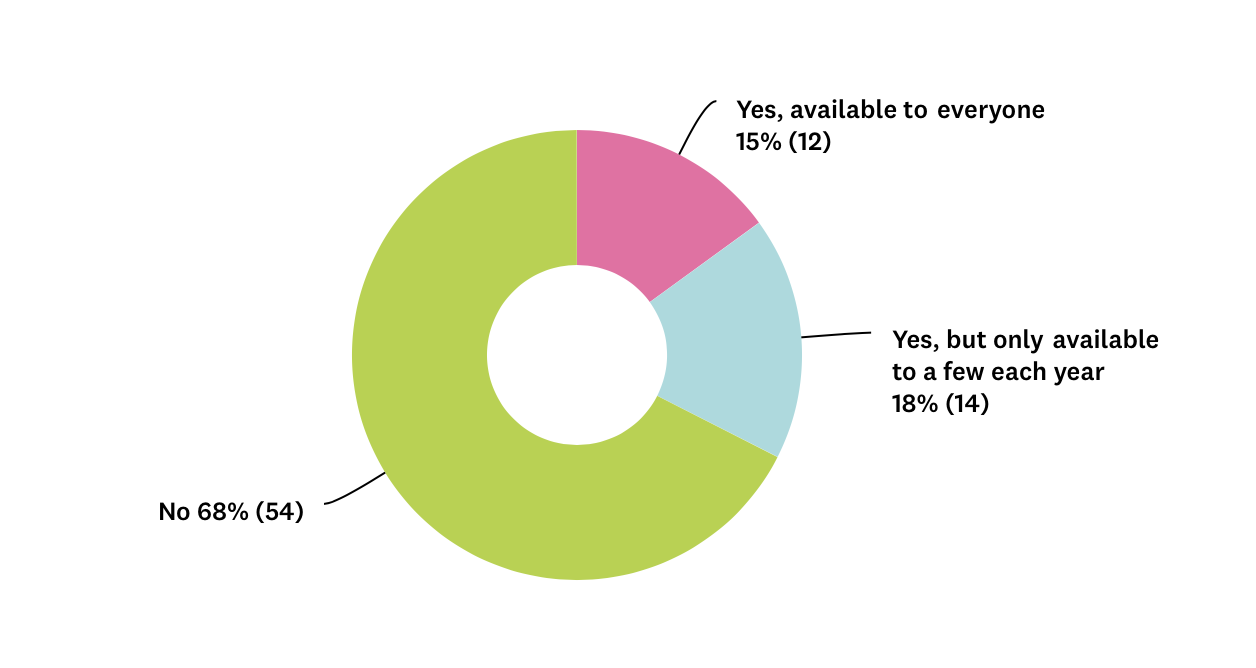
We have all heard of ‘The Great Resignation’ now sweeping the USA, with reportedly 30% of employees across industry and commerce seemingly looking to change jobs in the next few months. There have been many articles in the press discussing if, or when we might see the same here in Australia.
We decided to take a ‘temperature check’ and see what the mood was like amongst Australian retail merchandise management teams. The results may surprise you…
A word about our survey…
Our ‘temperature check’ is very much that. We have not scientifically balanced the respondents across geographical location and industry sector. The survey was open to anyone working in a retail merchandise management function and any industry sector. We had 80 respondents, the vast majority of which, (67.5%) worked in the fashion/apparel/footwear sector. There were also proportionally, a greater number of responses from Buyers/Senior Buyers and Planners/Senior Planners than from anyone working in the more junior roles as Assistants, Allocators etc. It is also worth noting that a person who is currently unhappy in their role may well be more likely to complete the survey than someone who is completely happy. Taking all that into account, there are certainly some strong themes coming through.
what is the current temperature?
Overall 52% of respondents were either likely or highly likely to look for a new job as we come out of the pandemic, compared with only 27% who were either unlikely or very unlikely to jump ship.
However, there is a marked difference dependent upon the job role. It seems that Buyers and Senior Buyers are more likely than other roles to be seeking pastures new with 61% either likely or very likely to be seeking a new role. Contrast that with Planners and Senior Planners where only 42% are looking to leave their current job.

How likely or unlikely are you to look for a new job as we come out of the pandemic?
When asked about the influencing factors, and here respondents could select more than one answer, the top three reasons were feeling exhausted or burnt out – 63%. Secondly, feeling undervalued – 39% and tying for third place was, wanting to move overseas/interstate, and not wanting to go back to working in the office, with 17% of respondents.
Even more interestingly, the reasoning differed between job roles and seniority of level. Senior Planners are feeling the least exhausted, with only 29% of them citing this reason. However 43% of Senior Planners feel undervalued. Those in the junior level roles are pretty much in line with the average at 61%. Compare this with Buyers, of whom 85% are feeling exhausted or burnt out, Senior Buyers at 50%, and Planners, at 73%.

Which of the following factors are influencing your decision to leave your current employer.
85% of buyers are feeling exhausted or burnt out, compared to only 29% of senior planners.
We could speculate on the reasons for this, certainly experience and seniority might be one explanation or it may well be that the buyer’s role has changed more dramatically than other roles as they have had to adapt to not being able to travel either for inspiration or to visit suppliers.
Of the other factors mentioned, some cited better pay, so could be included in feeling undervalued and some mentioned commuting/working from home. There were also comments about needing more resource, which could contribute to the feelings of fatigue.
It is worth mentioning here before we move to the next section, that 57% of respondents had been working from home for most if not all of the past 18 months and a further 28% had been working from home for at least half of the time. This may have an impact on their answer to the next question.
What would influence you to stay in your role?
As might be expected, the top answer here was, a pay rise, with 57% of respondents wanting to be paid more. Next overall was wanting a clear career path or investment in their development at 49%. However, this was greater amongst junior team members of which, 65% wanted a pay rise and 57% wanted more career development. Buyers put more flexible working ahead of career development at 57%. Other factors that would be an influence were an improved team culture or better leadership.
It made me realise that travel time to the office is ridiculous.
There have been skill shortages in buying and planning in Australia, for as long as I can remember, so most surprising was that 68% of respondents reported that their current employer did not provide a structured formalised training and development program. Where respondents reported there was such a program, 15% reported this was available to everyone, and 18% that it was only available to a few people each year.

Does your current employer provide structured, formalised training and development programs?
With almost half of respondents looking for a clear career path or investment in their development, retailers who already offer a great development program or those who will invest in team members’ capability development may well retain current team members, as well as negating the need to recruit heavily from overseas.
Taking into account the limitations of the survey, there is certainly some food for thought and some clear conclusions to be drawn; namely there is a definite feeling that over the course of the past 18 months, merchandise teams have had just about everything thrown at them. Many, particularly those in junior roles have literally been working from their bedrooms in a shared house. What comes across very strongly from the survey, is that people are seeking three things now from their employers:
-
- Some acknowledgement of how hard they have worked, be it with better remuneration or investment in their learning and development.
- Clear career pathways and a culture that values career development and training.
- Greater flexibility in how, where and for how long (number of hours) people are expected to work.
This temperature check was undertaken by Numensa. If you wish to speak to us about how we can assist you in delivering a first class capability program, please call Beverley Chambers on 0438 089 632.

Recent Comments